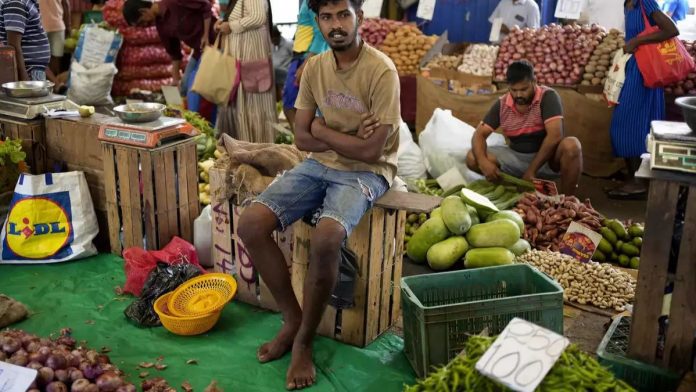News in brief:
-Â Sri Lanka economy saw a 1.6% growth in q3 2023, ending a recession thanks to its resilient agriculture sector, an IMF bailout package and aggressive interest rate cuts.
– Despite the positive momentum, the nation faces challenges and reforms ahead, with a projected full-year economic contraction of 3.6% and uncertainties about the extent of recovery.Â
Sri Lanka’s economy emerged from recession with a modest 1.6% growth in the third quarter of 2023, marking a turning point after its worst financial crisis in over 70 years.
This upturn, the first since late 2021, offers a glimmer of hope as the country navigates a challenging path towards recovery.
The rebound was driven primarily by the resilient agricultural sector, which expanded by 3% year-on-year. This robust performance comes amidst ongoing concerns about food security following Sri Lanka’s economic troubles.
Also, other sectors contributed to the positive trajectory, with industrial output inching up by 0.3% and the crucial services sector growing by 1.3%.
The International Monetary Fund’s (IMF) $2.9 billion bailout package, secured in March 2023, has provided critical support for the nation’s stabilisation efforts. It received a second tranche of $337 million, further solidifying the IMF’s backing.
Additionally, the Central Bank of Sri Lanka has played its part, aggressively cutting interest rates by 650 basis points since June to stimulate economic activity. This, coupled with declining inflation (from a peak of 70% in September 2022 to 3.4% in November 2023), has created a more conducive environment for growth.
However, despite the positive signs, Sri Lanka’s full-year economic performance in 2023 is still expected to be negative, with the IMF projecting a contraction of 3.6%.
The financial agency of the United Nations has cautioned that the country is not yet out of the woods. Challenging reforms, including higher taxes, restructuring of loss-making state enterprises, and tackling the foreign debt burden, lie ahead.
Some analysts, like Dimantha Mathew, head of research at First Capital, believe the growth momentum could accelerate in the final quarter of 2023, potentially reaching 7%-8%. This upbeat projection underscores the potential for a quicker rebound, fueled by stronger performance in services and manufacturing.




‘The rebound was driven primarily by the resilient agricultural sector, which expanded by 3% year-on-year.’
It is very instructive for the Nigerian government to borrow a leaf from what the south Asian country achieved in the agriculture sector, in a bid to address skyrocketing prices of basically everything and steer the economy in the right path.